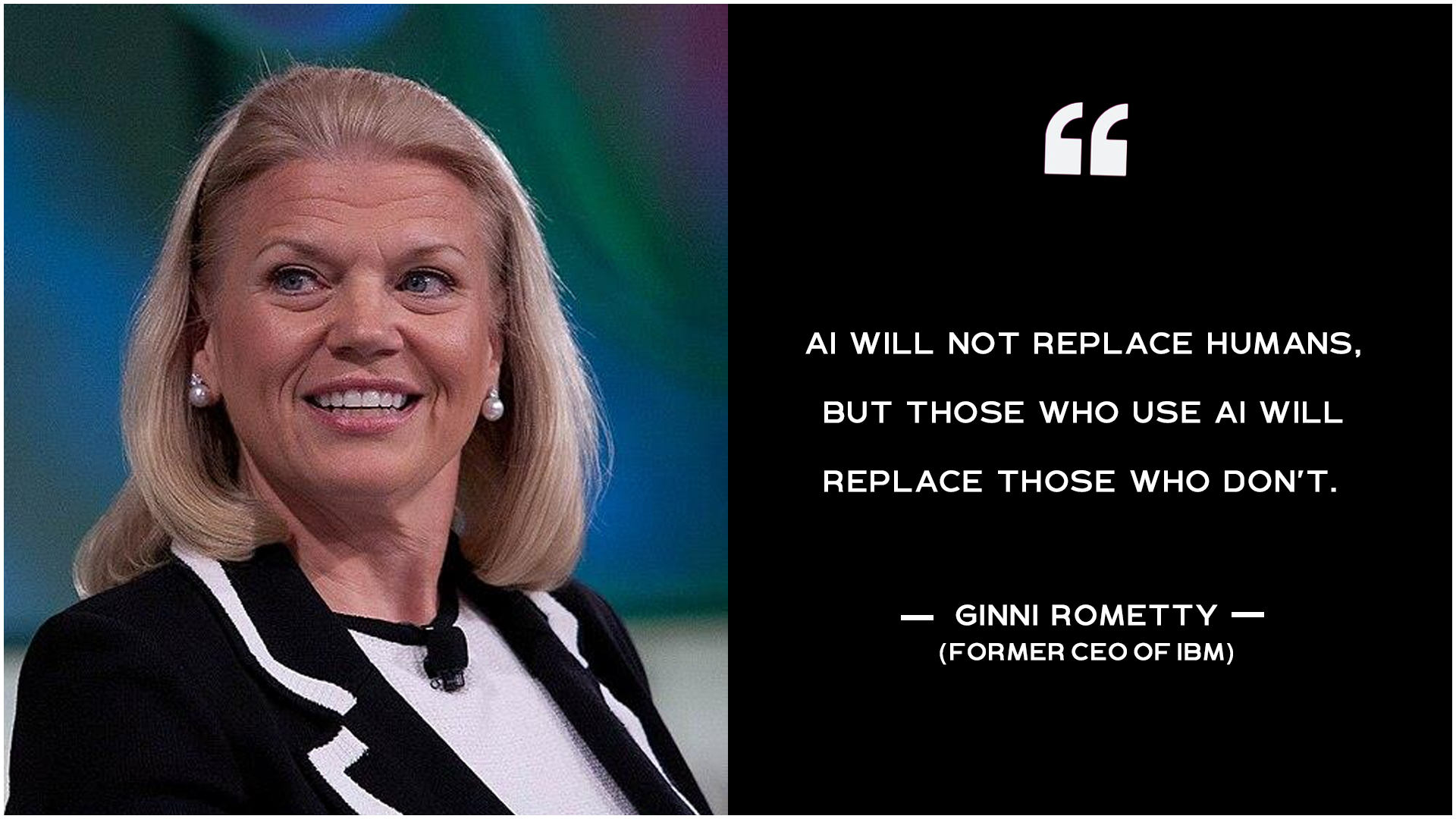Table of Contents
Introduction
AI thought leaders are the visionaries behind the technologies that are reshaping our world, driving breakthroughs in machine learning, natural language processing, robotics, and beyond.
Behind every AI breakthrough are visionary minds—researchers, entrepreneurs, and policymakers. Their innovations span generative models, autonomous tech, and transformative tools in healthcare and finance.
Top AI thought leaders in 2025 are not just defining new algorithms or launching products—they are shaping ethics, influencing policy, guiding enterprise strategy, and helping companies navigate existential risks. For business executives, understanding which leaders carry weight today—and why—can inform investments, partnerships, and competitive positioning.
Whether building powerful systems, championing AI practices, these leaders are influencing not only how businesses evolve but also how societies adapt.
In this blog, we spotlight the Top AI Thought Leaders in 2025—those who are setting the agenda for research, development, ethics, and real-world AI implementation.
Key Statistics
- The AI industry is projected to increase in value by 500% over the next 5 years
- Almost 100 million people are working in the AI space
- 83% of companies claim that AI is a top priority in their business plans
- AI is expected to improve employee productivity by 40%
Geoffrey Hinton – Godfather of AI
Geoffrey Hinton is Professor Emeritus at the University of Toronto and a former VP and Engineering Fellow at Google. He is widely recognized as the Godfather of AI, for his research in neural networks and backpropagation, cornerstones of modern AI.
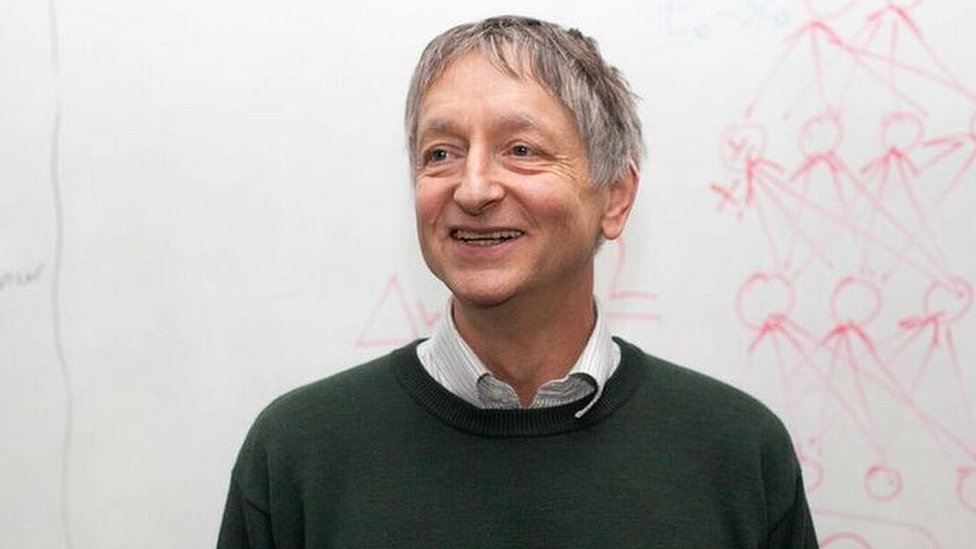
Geoffrey Hinton, born on December 6, 1947, in Wimbledon, London, is a descendant of logician George Boole.
- He studied psychology at Cambridge and earned a PhD in AI from the University of Edinburgh in 1978
- Hinton held early research roles at Sussex, UC San Diego, and Carnegie Mellon, focusing on brain-like computation
- On neural networks, he co-developed the backpropagation algorithm and later helped pioneer deep learning at the University of Toronto
- His work on AlexNet and the founding of DNNResearch, later acquired by Google, cemented his role as a key figure in modern AI
In 2023, Hinton left Google to voice ethical concerns about advanced AI and AGI By 2025, he remains a leading voice on AI safety, ethics, and alignment.
Key Contributions
- Backpropagation: Hinton played a crucial role in popularizing and refining backpropagation, a fundamental algorithm that enables neural networks to learn by adjusting their internal parameters based on error signals
- Boltzmann Machines: He made significant contributions to the development and application of Boltzmann machines, a type of stochastic recurrent neural network, particularly in the field of unsupervised learning
- Deep Belief Networks: Hinton’s work on deep belief networks, a class of deep learning models, has been instrumental in various applications, including image and speech recognition
- Distributed Representations: He explored the concept of distributed representations in neural networks, which has implications for how information is processed and stored in complex systems
- Time-Delay Neural Networks: Hinton’s research on time-delay neural networks has contributed to the development of systems capable of processing sequential data, such as speech and time-series data
For organizations and policymakers navigating Artificial Intelligence adoption, Hinton’s guidance offers a crucial lens: develop AI not just because we can, but because we should, ethically and responsibly
being an AI thought leader means more than just speaking; it means being found. To do that, content must be optimized for Answer Engines—i.e. employing Answer Engine Optimization (AEO).
Elon Musk – Grok AI
Elon Musk is the CEO of xAI, creator of Grok AI, Co-founder of OpenAI, and CEO of Tesla & SpaceX He remains a dominant force shaping the global conversation around artificial intelligence.
In 2023, Musk launched xAI, a company dedicated to building “truth-seeking” AI to develop systems grounded in transparency and factual reliability.

- In 2023, Musk launched xAI, a company dedicated to building “truth-seeking” AI to develop systems grounded in transparency and factual reliability.
- By 2025, xAI is increasingly integrated into its broader tech ecosystem—including Tesla’s self-driving AI, Neuralink’s neural interfaces, and the social platform X (formerly Twitter), where AI-generated features are being actively tested.
- Musk’s mission with AI extends beyond technology; it’s deeply rooted in existential concern.
At the same time, he’s pushing forward innovations in robotics (Tesla Optimus), space-based AI systems (via SpaceX), and AI-human integration.
Key Contributions
- Integration of AI in Tesla: Spearheaded the use of AI in Tesla’s Autopilot and Full Self-Driving (FSD) systems, pushing the boundaries of machine learning in real-world autonomous driving applications
- AI-Human Symbiosis via Neuralink: Founded Neuralink, a company developing brain-computer interfaces aimed at merging human cognition with AI to ensure long-term coexistence and safety
- AI for Space Exploration (SpaceX): Uses AI in SpaceX for autonomous spacecraft navigation, docking, and rocket landing systems, revolutionizing reusable spaceflight
- Advocate for AI Safety and Ethics: Vocal about the existential risks of AI Musk has consistently called for regulation, oversight, and international cooperation to manage the development and deployment of AGI
Mark Zuckerberg – Meta

- LLaMA, which stands for Large Language Model Meta AI, is a family of large language models (LLMs) developed by Meta (formerly Facebook)
- LLaMA models come in different sizes, with parameter counts ranging from 7 billion to 70 billion and beyond This allows users to choose a model size that best fits their computational resources and needs
In 2025, Zuckerberg is leading Meta’s AI-first strategy, integrating generative AI across platforms like Facebook, Instagram, Threads, and WhatsApp
Key Contributions
- Advocate for Open-Source AI: Strong proponent of open AI models, believing they promote transparency, accessibility, and innovation Meta’s open-sourcing of LLaMA sparked global AI experimentation across academia and startups
- AI-Powered Metaverse Development: Invested billions in AI to power Meta’s vision of the Metaverse, using AI for avatar animation, world generation, real-time translation, and personalized digital experiences
- Integration of AI Across Meta Products: Deployed AI across Facebook, Instagram, and WhatsApp—for content moderation, recommendation algorithms, ad targeting, and generative tools like AI chatbots and image editing assistants
- Launch of Meta’s AI Assistants: Introduced Meta AI, a chatbot powered by LLaMA and integrated across apps, allowing users to access intelligent, real-time assistance within messaging platforms and AR/VR environments
Yann LeCun – Meta - Chief AI Scientist
Yann LeCun is the Chief AI Scientist at Meta and a Turing Award-winning pioneer of deep learning. He believes future AI should move beyond large language models (LLMs) to develop more efficient reasoning and planning capabilities.
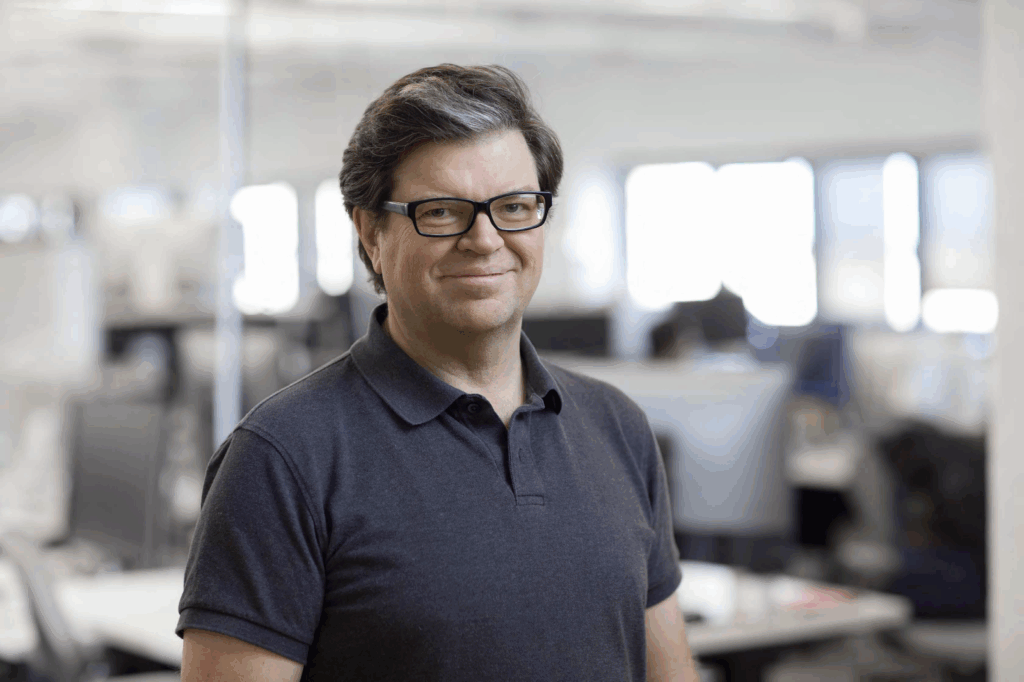
- Renowned for his groundbreaking work on convolutional neural networks (CNNs) and his pivotal role in the resurgence of neural networks, LeCun is a driving force behind Meta’s AI innovation
- LeCun has been openly critical of the limitations of current generative AI models, arguing that we must invest in objective-driven learning architectures that mimic how humans understand and interact with the world
For businesses following Meta’s AI research, LeCun’s leadership signals a shift toward energy-efficient, scalable, and more adaptable AI systems that can move beyond text generation to real-world utility.
Key Contributions
- Inventor of Convolutional Neural Networks (CNNs): LeCun pioneered CNNs, the backbone of modern computer vision, enabling machines to understand images and visual data
- Creator of LeNet-5: Developed one of the first practical neural networks for image recognition, widely used in early applications like digitizing handwritten checks
- Academic Leadership and Mentorship: As a professor at NYU, LeCun has trained generations of AI researchers and continues to shape academic and industry thinking on machine learning and neuroscience-inspired AI
- Promoter of Self-Supervised Learning: A vocal advocate for self-supervised learning, which trains AI models using unlabeled data—viewed by LeCun as the future path toward artificial general intelligence (AGI)
Jeff Dean – Google's Chief Scientist
Jeff Dean is the Chief Scientist of Google DeepMind and Google Research A foundational figure in modern AI and computer science, Jeff Dean has played a crucial role in developing some of the most influential technologies of our time.

- In 2025, Dean leads scientific strategy across Google Research and DeepMind, focusing on building scalable, safe, and socially beneficial AI
- He oversees teams working on Gemini, Google’s state-of-the-art multimodal AI, as well as research into responsible AI development, fairness, and long-term safety
Known for his contributions to TensorFlow, MapReduce, and large neural network training systems, Dean is also a champion for open-access research and interdisciplinary collaboration.
Key Contributions
- Architect of TensorFlow (2015): Led the development of TensorFlow, Google’s open-source deep learning framework, now widely used by researchers, developers, and companies around the world for building machine learning models
- Advancement of Large-Scale AI Models: Pioneered work on large language models at Google, which laid the foundation for models like BERT, T5, and PaLM—powering products like Google Search and Assistant
- AI in Google Products: Instrumental in integrating AI into Google products—Search, Translate, Photos, Assistant, and Ads—bringing machine learning into everyday use for billions of users
- Leader at Google DeepMind and Google Research: Served as SVP of Google Research and Health, overseeing AI breakthroughs in healthcare, natural language processing, computer vision, and reinforcement learning
Reid Hoffman – LinkedIn
Reid Hoffman is the Co-founder of LinkedIn, a Partner at Greylock, and a leading advocate for ethical AI Hoffman occupies a unique space where business innovation, venture capital, and social impact converge

In 2025, he continues to guide the discourse through his podcast “Possible”, co-authored thought leadership content, and strategic investments.
- He urges businesses and governments alike to consider AI’s societal impact, particularly around employment, misinformation, and digital equity
- Through his role at Greylock Partners, Hoffman backs companies building mission-aligned AI tools—from productivity platforms to AI for education and healthcare
He consistently promotes AI alignment, governance, and interdisciplinary collaboration, blending insights from policy, philosophy, and business strategy
Key Contributions
- Co-Founder of Inflection AI (2022): Reid Hoffman co-founded Inflection AI, a company focused on developing personal AI assistants Its flagship product, Pi (Personal Intelligence), offers conversational interactions, emphasizing emotional intelligence
- Founding Investor & Board Member at OpenAI: As an early backer and board member of OpenAI, Hoffman supported the organization’s mission to ensure AGI benefits all of humanity
- Author on AI and Society: Co-authored the book Impromptu: Amplifying Our Humanity Through AI (2023), which explores how large language models like GPT-4 can empower individuals and enhance human creativity, productivity, and understanding
- Bridge Between Silicon Valley and Academia: Through his involvement in think tanks and partnerships (eg, the Stanford Institute for Human-Centered AI), Hoffman supports research at the intersection of AI, philosophy, economics, and public policy
Dr Fei-Fei Li – Stanford University
Dr Fei-Fei Li is a Professor at Stanford University and Co-Director of the Stanford Institute for Human-Centered Artificial Intelligence (HAI).
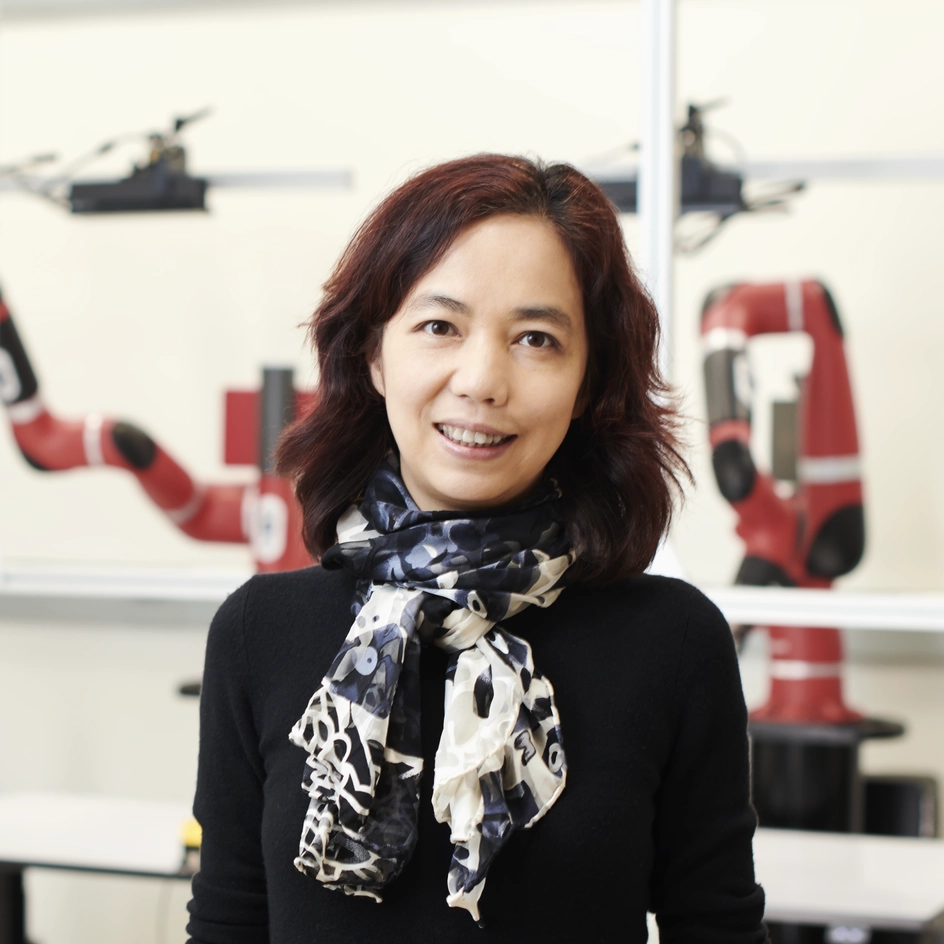
- She stands as one of the most influential voices advocating for ethical and inclusive AI development
- In 2025, her work focuses on building human-centered AI systems that respect human rights, enhance capabilities, and promote societal well-being
- A pioneer in computer vision, her ImageNet project laid the foundation for much of today’s AI advancements
- Beyond research, she’s a tireless advocate for increasing diversity in tech, especially the representation of women and underrepresented minorities in AI
For business and tech leaders, Dr Li offers a compelling framework: AI must be powerful, but also human-first, transparent, and inclusive.
Key Contributions
- Pioneer of Human-Centered AI: As Co-Director of Stanford’s Human-Centered AI Institute (HAI), she advocates for ethical, transparent, and inclusive AI Her vision focuses on ensuring that AI technologies are aligned with human values and societal benefit
- Chief Scientist at Google Cloud AI (2017–2018): Led AI and machine learning strategy at Google Cloud, focusing on democratizing AI through tools like AutoML, which allowed users with limited expertise to build their own AI models
- Founder of AI4ALL: Co-founded AI4ALL, a nonprofit dedicated to increasing diversity and inclusion in AI by educating underrepresented high school students through mentorship and hands-on programs
- Co-Founder of World Labs (2024): Launched World Labs, an AI startup focused on spatial intelligence, enabling machines to understand and interact with 3D physical environments
Demis Hassabis – DeepMind
Demis Hassabis is the CEO and Co-founder of DeepMind. Blending scientific ambition with ethical awareness, Hassabis has led some of the most groundbreaking projects in AI, including AlphaGo, AlphaFold, and AlphaCode.

- AlphaFold’s success in predicting protein structures revolutionized biology and demonstrated AI’s power beyond the digital realm
- Now, Hassabis is steering DeepMind toward the next frontier: AI that collaborates with humans, not just assists them
His leadership philosophy combines scientific rigor, long-term thinking, and global responsibility, making DeepMind a model of how to scale innovation without compromising ethical standards.
Key contributions
- Co-founder of DeepMind: Co-founded DeepMind Technologies in 2010 alongside Shane Legg and Mustafa Suleyman. Acquired by Google in 2014 for ~$500 million, one of the biggest AI acquisitions in history
- Breakthrough with AlphaGo: AlphaGo defeated world champion Lee Sedol in the complex board game G.o. This was a landmark achievement, demonstrating that AI can master highly intuitive, strategic tasks far earlier than many experts expected
- Focus on Artificial General Intelligence (AGI): DeepMind’s work is grounded in cognitive neuroscience, machine learning, and computational theory, aiming to model human-like intelligence
Sam Altman – OpenAI
Sam Altman is the CEO of OpenAI At the forefront of the generative AI movement, Altman has led OpenAI through its most transformative milestones—ChatGPT, GPT-4, and now GPT-5.

- In 2025, he continues to shape how AI intersects with business, productivity, and everyday life
- Altman has also emerged as a key global voice in AI governance, engaging with governments, corporations, and NGOs to discuss safety protocols, economic shifts, and the potential of universal basic income (UBI) in an AI-driven future
His leadership demonstrates that AI innovation and responsibility can go hand-in-hand, offering companies a roadmap for deploying AI at scale while remaining ethically aligned.
Key Contributions
- CEO of OpenAI: Transformed OpenAI into a global AI leader, responsible for products like ChatGPT, DALL·E, Codex, and GPT-4 Oversaw the release of GPT-3 in 2020 and ChatGPT in late 2022, bringing generative AI to the mainstream
- Founder of Loopt: Founded the location-based social networking app Loopt while at Stanford Loopt was part of Y Combinator’s first batch in 2005 Sold to Green Dot Corporation in 2012 for $43 million
- President of Y Combinator: Succeeded Paul Graham as president of the iconic startup accelerator Expanded Y Combinator’s influence with YC Continuity (late-stage investing) and YC Research (moonshot R&D)
Ian Goodfellow – GoogleDeep Mind - Research Scientist
Ian Goodfellow is a Research Scientist and the Inventor of Generative Adversarial Networks (GANs).
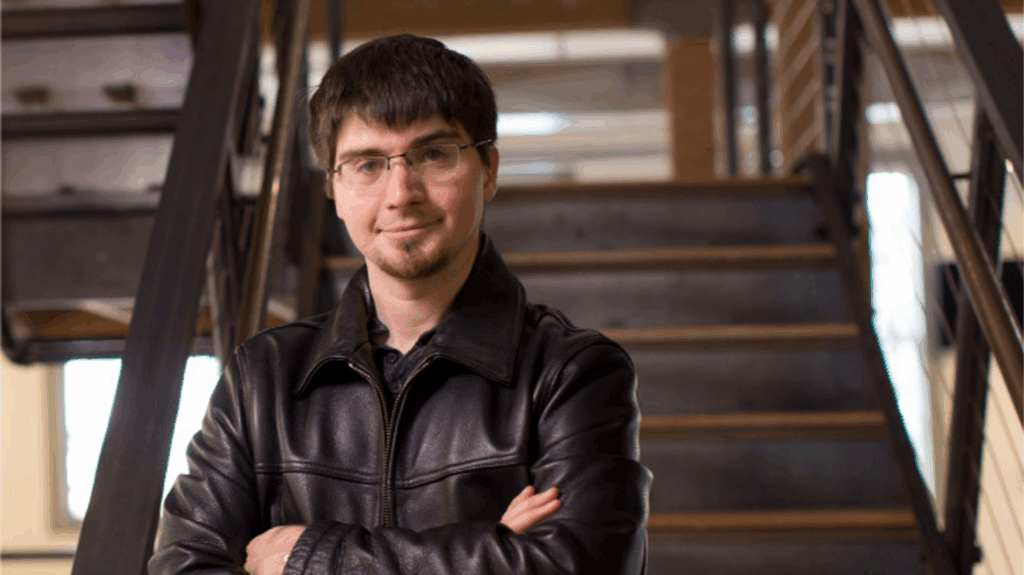
- One of the most impactful figures in the field of generative AI, Goodfellow revolutionized how machines create content through his invention of GANs—tools now used in art, synthetic data, fashion, and gaming
- Goodfellow focuses on adversarial learning, model robustness, and ethical safeguards to ensure generative systems cannot be easily manipulated or misused
- His work is especially critical in areas like deepfakes, AI-generated misinformation, and AI model security
As businesses increasingly adopt creative AI, Goodfellow’s contributions underscore the importance of robustness, trust, and ethical design in model development.
Key Contributions
- Invention of GANs: Goodfellow is best known for inventing generative adversarial networks (GAN), using deep learning to generate images
- Deep Learning Textbook: Co-authored the seminal textbook “Deep Learning” (2016) along with Yoshua Bengio and Aaron Courville This book is widely used in academia and industry as a foundational resource on neural networks and deep learning principles
- AI Safety & Ethical AI Advocacy: Actively involved in AI alignment and responsible AI development Advocated for transparency and robustness in AI systems, especially in the context of generative models
Kai-Fu Lee – Sinovation Ventures
Kai-Fu Lee is the CEO of Sinovation Ventures and author of AI 2041 With decades of experience at Microsoft, Google China, and now his own venture capital firm, Lee is steering investments into startups focused on education, healthcare, robotics, and sustainability, particularly in Asia.
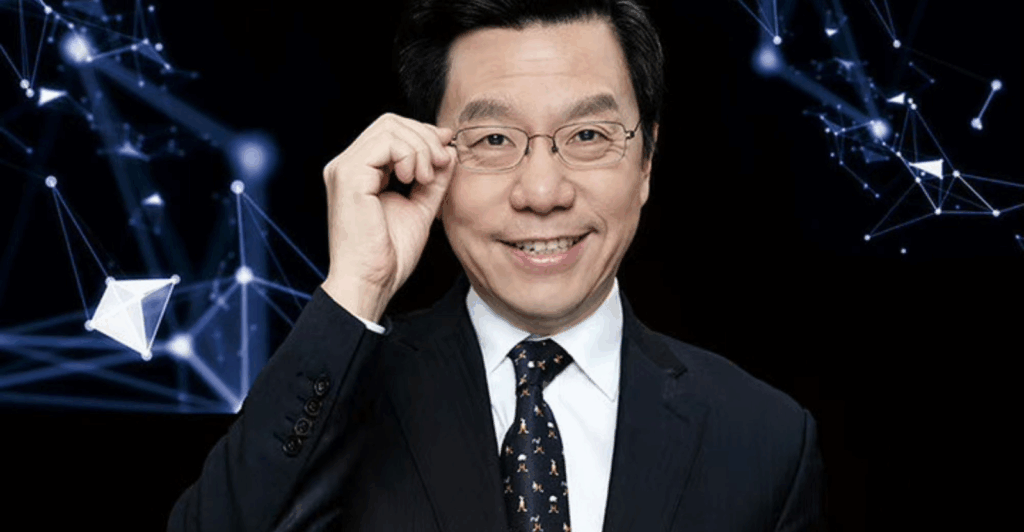
- In 2025, his vision is rooted in AI for social good, advocating for innovation that uplifts underserved populations and addresses systemic global challenges
- His bestselling book AI 2041 remains a must-read for leaders trying to understand AI’s medium-term trajectory through storytelling and expert analysis
Kai-Fu Lee’s perspective is invaluable for international companies: AI leadership requires not just innovation, but cultural intelligence and geopolitical awareness.
Key Contributions
- Leadership Roles at Major Tech Companies: Held senior AI-related positions at Apple, SGI, Microsoft, and Google As founding president of Google China, he played a key role in bringing advanced AI and search technologies to the Chinese market
- Founder of Sinovation Ventures (2009): Founded Sinovation Ventures, a venture capital firm that invests in AI startups in China and the US, nurturing the next generation of AI entrepreneurs and technologies
- Author of AI Superpowers (2018): Wrote the influential book AI Superpowers: China, Silicon Valley, and the New World Order, which outlined the global AI race, particularly between the US and China, and advocated for ethical considerations in AI development
- Promoter of Human-Centered AI: Strong advocate for AI-human collaboration, arguing that AI should complement rather than replace human capabilities He promotes job transformation, not displacement
Conclusion
AI is evolving rapidly, but it’s the people behind the code who define its direction. These thought leaders are not only pushing the boundaries of what’s technically possible—they are also influencing how AI is developed, regulated, and adopted by society at large.
Whether it’s through research, ethical leadership, business innovation, or public policy, each of them plays a vital role in shaping a future where AI can be both powerful and humane.
As we navigate the next frontier of artificial intelligence, keeping an eye on these visionaries will offer deep insights into where the world is headed—and how your business can stay ahead.
Deepak Wadhwani has over 20 years experience in software/wireless technologies. He has worked with Fortune 500 companies including Intuit, ESRI, Qualcomm, Sprint, Verizon, Vodafone, Nortel, Microsoft and Oracle in over 60 countries. Deepak has worked on Internet marketing projects in San Diego, Los Angeles, Orange Country, Denver, Nashville, Kansas City, New York, San Francisco and Huntsville. Deepak has been a founder of technology Startups for one of the first Cityguides, yellow pages online and web based enterprise solutions. He is an internet marketing and technology expert & co-founder for a San Diego Internet marketing company.

